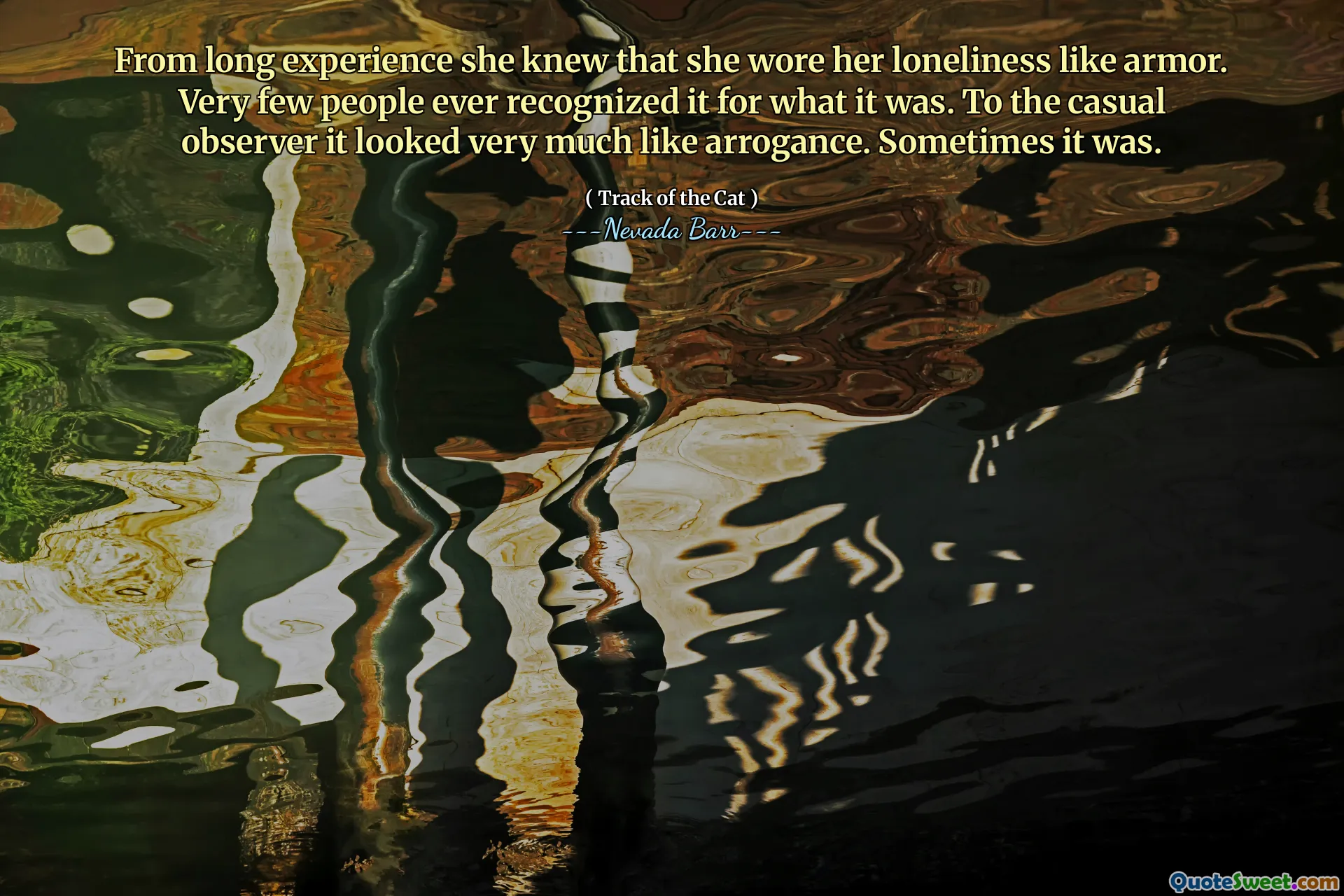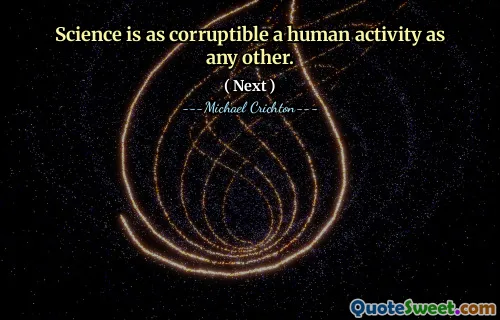
From long experience she knew that she wore her loneliness like armor. Very few people ever recognized it for what it was. To the casual observer it looked very much like arrogance. Sometimes it was.
This quote offers a profound insight into the human psyche and the intricate ways individuals cope with solitude and emotional barriers. The metaphor of loneliness being worn like armor suggests that the subject has developed defenses to protect herself from emotional pain or vulnerability. Armor, while providing safety, also acts as a barrier that keeps others at bay, fostering a sense of isolation. The recognition that few people perceive this loneliness for what it truly is highlights how easily emotional struggles can be misunderstood or overlooked. Instead of seeing the vulnerability behind the armor, casual observers interpret her demeanor as arrogance, illustrating how outward appearances often distort reality. This layers of misinterpretation reveal society’s tendency to judge without truly understanding the internal landscape of others. Sometimes, this armor truly functions as arrogance, a defense mechanism to mask feelings of inadequacy or fear of rejection. Such emotional armor could stem from past betrayals, heartbreak, or simply an innate personality trait aimed at self-preservation.
This reflection raises the importance of empathy and patience in our interactions with others. Recognizing that someone’s outward demeanor might conceal deeper struggles can foster compassion and more meaningful connections. It reminds us that emotional wounds often remain hidden, yet their effects are very real and impactful. The quote subtly asks for awareness and sensitivity, urging us to look beyond the surface to understand the complexities of human emotion. Each person we encounter carries a story, often with silent battles that shape their behavior and attitudes. Acknowledging this can transform our perception from superficial judgment to genuine understanding, facilitating empathy and emotional support in our relationships. Moreover, it highlights the importance of introspection: considering whether our own defenses and assumptions might hinder authentic connection with others.
In essence, this quote encapsulates the nuanced dance between vulnerability and protection that defines much of human experience. It is a reminder of the silent battles people fight daily, and the importance of kindness in recognizing and respecting their internal struggles.


